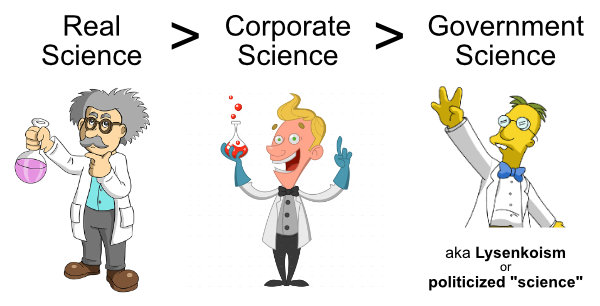Evaluating Sources
Many issues involve information from outside sources. There seems to be disagreement among reasonable people about what is a good or bad source. Here is my take.
Bad sources: Sources that are biased, that is, have some clear interest in the outcome such as gaining power or money. Thus one should be very very skeptical of:
- Government sources, especially when political players have an interest in the outcome. From the Tuskegee experiments, to the Gulf of Tonkin false flag, to Colin Powell’s fake WMDs, to cannabis being a schedule one drug with (according to the government) no medical uses whatsoever, we have seen how government “experts” lie, and say whatever increases their power and pelf. As a general heuristic: Everything the government says is probably a lie.
- Firms and organizations that stand to gain or lose money or good will. E.g. We don’t believe tobacco firms when they claim tobacco is safe, or drug nazis when they say pot is a killer drug, or BLM when they say all whites are racist.
- Firms and agencies that receive a lot of government subsidies. E.g. The military and NASA and munitions firms and many research institutions get grants from the government to okey-dokee political agendas. Example: Since the military and NASA get paid to hype climate alarmism, their “research” is suspect.
Good sources: Independent people, associations, and firms with no particular political program or profit motive.
So for the COVID panic, the worst possible source is Dr. Fauci, a government mouthpiece employed by government agencies for 50 years to (mainly) spout propaganda and legitimize politicized “science.”
The best sources are from independent doctors and researchers. (Like the ones getting censored by Facebook and Twitter.)
Peer review could be a good thing, if government was not corrupting the process. If the review is done by independent people, as opposed to government agencies or government-paid stooges, then it is okay. Unfortunately, most peer reviews are done by people who are paid by governments. These state-slimed reviews are not credible. As a general rule: Peer reviews are like Wikipedia articles; the more controversial the subject, the less likely the review will be credible.
If the area has been cartelized, then any government or crony information is suspect. Thus, anything put out by the Federal Reserve Bank board about money, banking, and inflation is highly suspect, as is any information from the FDA and CDC about health, since banking and medicine are highly cartelized (“regulated”.)

